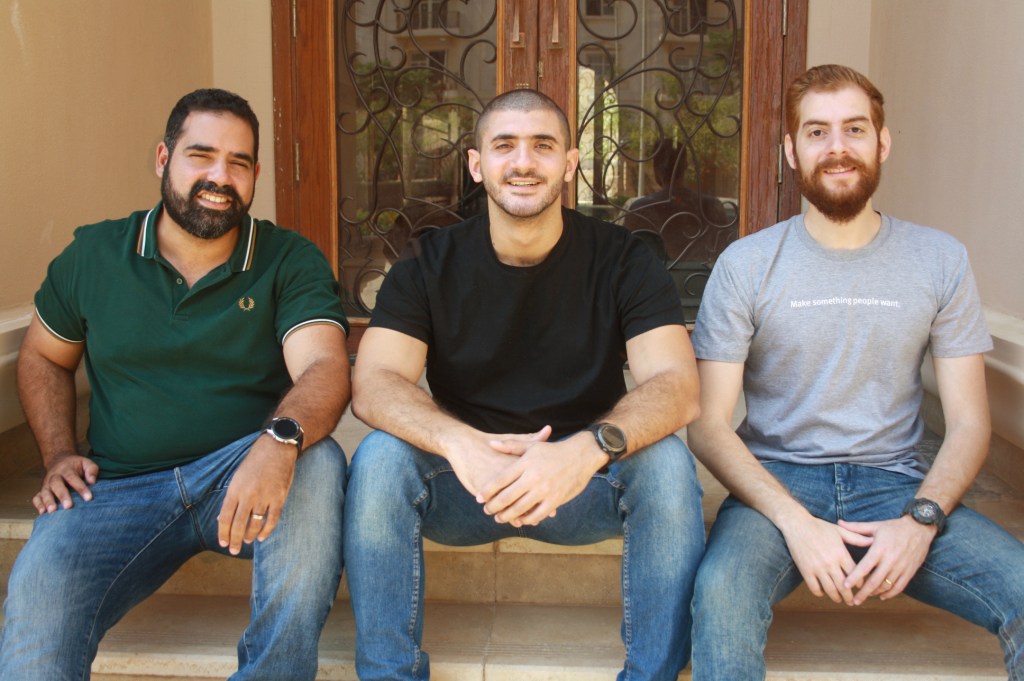The average penetration rate for insurance in Africa is between 3% to 5%. South Africa makes up a large bulk of it; without it, the continent is on a 1% to 2% rate even with other developed technology and financial markets like Kenya, Nigeria and Egypt.
The insurance market is still one of the industries least disrupted by technology on the continent. The reasons vary, from bad experiences and poor satisfaction on the part of consumers to high distribution costs for providers.
Recently, some startups such as Lami, Ctrl and Naked have sought to take on each regional market by storm, armed with the necessary capital to scale. Y Combinator Summer 2021 graduate Amenli is taking its operations up north and is announcing a $2.3 million seed round to provide insurance services for Egyptians.
A couple of local and foreign firms invested in the round — co-lead investors P1 Ventures, GFC, and Anim Fund (Founders Fund scout fund), with Costanoa VC, Liquid2 Ventures, Cliff Angels and other angel investors participating.
Founded by Shady El Tohfa, Omar Ezz El Din and Adham Nauman in 2020, Amenli addresses a $2 billion untapped insurance market in Egypt. But it was a series of personal experiences that prompted CEO El Tohfa to look into the opportunities in the market.
El Tohfa recounts two stories where his friends lost their fathers. While the said loss negatively affected the welfare of his first friend and that of his family because of unpaid medical bills, it was different for the other friend who claimed that having insurance helped his family escape financial difficulties despite his father’s expensive treatments.
Those two accounts, alongside Nauman’s newfound knowledge that an average Egyptian could have insurance without being an employee and the Egyptian pounds’ devaluation in 2016, shaped how the founders understood the importance of insurance in Egypt.
The traditional way insurance works in Egypt is in this manner: An insurance company partners with banks to sell insurance to mostly big-spending customers with high credit limits (as they are the most lucrative). And these providers focus on the B2B market because they lack the tools to access the mass retail market.
In this segment is a middle-income pool of about 50 million adults; that’s the market Amenli is after, El Tohfa says.
Typically if anyone from this segment seeks to get insurance, it can take three to six weeks to buy a single policy from an insurance provider. El Tohfa says the reason is that insurance companies do not prioritize individuals.
“The cost of serving is very high and the economics basically do not work for them,” he added.
But Amenli wants to make it work. When users log onto its platform, they are asked to answer a few questions, and the answers provided determine what insurance plans — life, medical or motor — to recommend.
Before launch, Amenli would meet insurance companies to strike some partnerships to provide consumers immediate quotations around different types of policies. However, it was difficult to achieve, CTO Nauman said. “We got struck by the fact that most of the companies didn’t actually have the capabilities to give APIs or to give us documentation to integrate.”
So, Amenli has gathered its legacy calculations, configured a model to serve these quotations instantly and built its own infrastructure. It also provides APIs to other insurance companies banking on its position as the first licensed digital insurance broker in Egypt.
Life after YC has been great for Amenli. Without sharing specifics, El Tohfa says the company has tripled its revenue since graduating from the accelerator. While policies sold also increased, customers didn’t grow as much since they are mostly repeat customers who use multiple policies at once, the CEO said.
The platform issues more than 500 policies in less than 10 mins compared to the minimum of three-week industry standard. The numbers look impressive; however, the founders still think the company is still on the path to finding product-market fit.
“Right now, we are still trying to prove that there is demand in the market for selling insurance because there was no benchmark and we did not know if people would receive the insurance online,” he said. “Everyone would say that in Egypt, people do not want to understand or buy insurance. But what we found is that educated people in the middle-income segment are aware of insurance, understand it and want to buy it, even though it wasn’t accessible to them before.”
Before starting Amenli, El Tohfa and Nauman were part of the founding team at Egyptian fintech Paymob. El Tohfa was the CCO while Nauman was the tech lead for one of Paymob’s products.
At some point, the pair worked on a microfinance product in 2017 and came across insurance as a concept for the first time. “We were fascinated by the concept of it. Before that, we did not have a lot of information or knowledge about insurance at all. But it was very interesting to us,” said El Tohfa.
Continuous research and interest led the pair to decide that they wanted to venture into insurtech full-time. However, it wasn’t until meeting third co-founder and CCO Omar Ezz El Din and securing an insurance brokerage license that the company eventually launched.
A full year of operating with Y Combinator’s backing has prepared Amenli for what’s ahead. The CEO says the new funding will be used to expand its team, scale rapidly and acquire more customers in a market expected to grow at CAGRs of 7% per annum within the next five years.
This YC Summer batch features the largest group of African startups yet































Comment